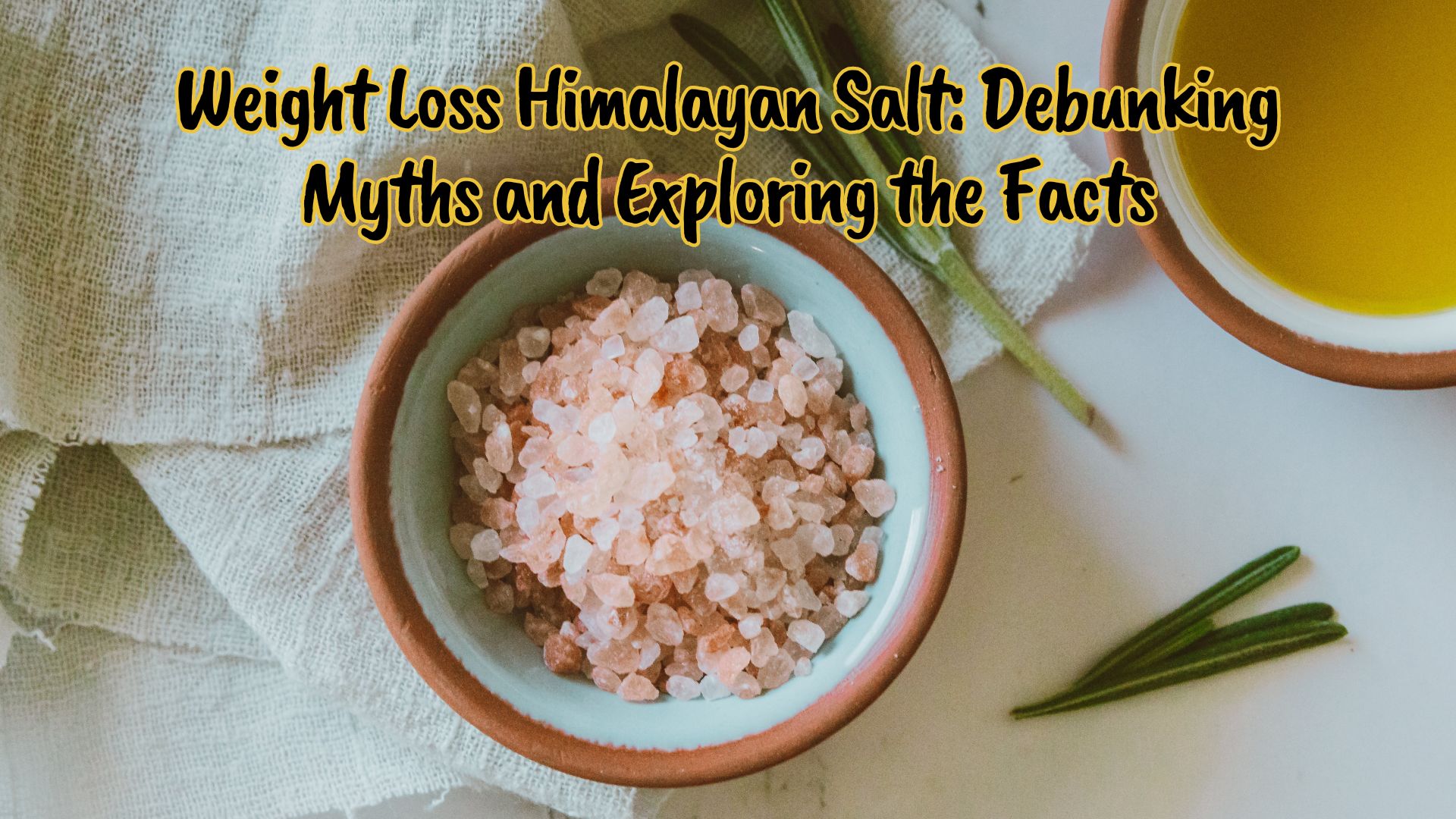Introduction
Weight Loss Himalayan salt, a pink-hued variety of salt sourced near the Himalayan Mountains of South Asia, has gained significant popularity in recent years. With claims ranging from aiding weight loss to detoxifying the body, it has become a subject of interest for those seeking natural remedies for their health concerns. In this comprehensive article, we will delve into the topic of using Himalayan salt to lose belly fat, examining its alleged benefits, exploring the scientific evidence, and uncovering the truth behind the claims.
Understanding Weight Loss Himalayan Salt
Himalayan salt is primarily composed of sodium, an essential nutrient required by the body. However, contrary to popular belief, it does not offer any unique health benefits compared to other dietary salts. Trace minerals such as calcium, potassium, and magnesium, which occur in minimal concentrations and do not significantly contribute to nutritional value, attribute the pink color to Himalayan salt. While some proponents argue that these minerals could be advantageous. The reality is that you would need to consume an excessive and potentially harmful amount of sodium to obtain any substantial benefits from these trace minerals.
Debunking the Myth: Himalayan Salt and Belly Fat Loss
Despite claims linking Himalayan salt to belly fat loss, there is no scientific evidence supporting this notion. Overall caloric intake, physical activity, and individual metabolism influence weight loss, which is a complex process. Isolating the impact of Himalayan salt consumption on belly fat reduction is not feasible. As weight loss requires a comprehensive approach rather than relying on a single ingredient or product.
The Influence of Salt on Weight Gain
The underlying mechanisms involved in weight gain have been associated with salt intake, and it is crucial to understand. Studies have found that individuals who consume high amounts of salt often consume larger quantities of food and more calories overall. It is plausible to attribute the correlation between salt-rich diets and weight gain to the poor diet quality of processed foods rather than the salt content specifically. Consequently, focusing on a balanced diet and minimizing the consumption of ultra-processed foods is key for sustainable weight management.
Water Retention and Salt
Salt consumption commonly causes water retention. Consuming salty foods leads to an increase in sodium concentration in the body. Triggering the body’s natural response to retain water and maintain its sodium balance. This retention of water can result in a temporary increase in weight, but it is not indicative of an increase in body fat. Therefore, any weight gain experienced after consuming a salty meal is likely due to water retention rather than actual fat accumulation.
The Bottom Line for Weight Loss Himalayan Salt
While Himalayan salt may add flavor and visual appeal to your dishes. It is important to recognize that it does not possess any special properties for belly fat reduction. Weight loss and fat loss require a comprehensive approach, including a balanced diet, regular physical activity, and a calorie deficit. Relying solely on Himalayan salt or any specific ingredient for weight loss is unlikely to yield significant results.
Maintaining a healthy lifestyle and making sustainable choices is crucial for achieving long-term weight management goals. Rather than focusing on specific ingredients or trends, adopting a well-rounded approach. It includes a balanced diet, portion control, regular exercise, and stress management is key to promoting overall health and well-being.
Conclusion
In conclusion, the notion that Himalayan salt can aid in losing belly fat is unsupported by scientific evidence. While Himalayan salt does contain trace minerals. These minerals occur in such minimal concentrations that their contribution to overall health and weight loss is negligible. Weight loss is a multifaceted process that requires a holistic approach, including a balanced diet, regular physical activity, adequate sleep, stress management, and behavioral changes.
